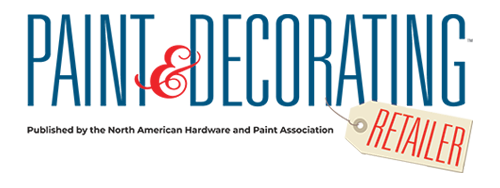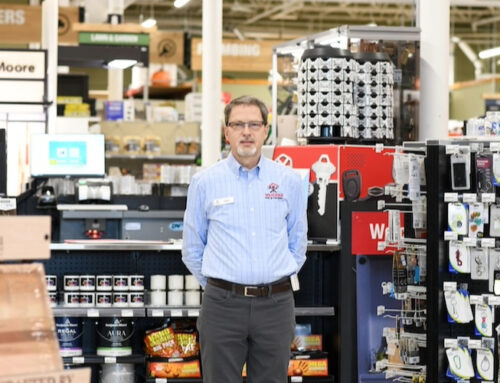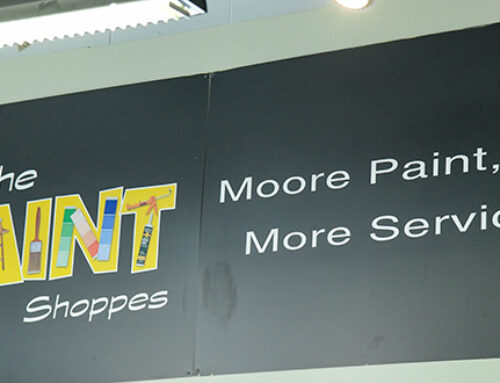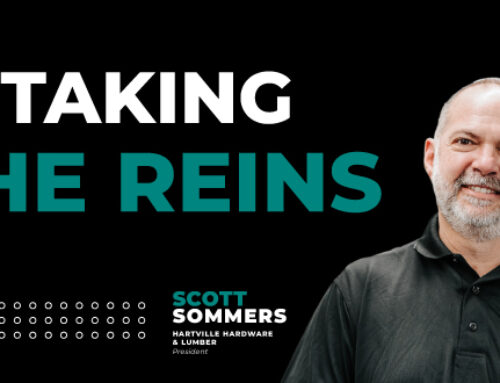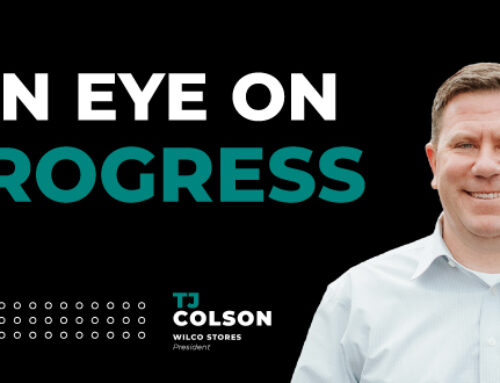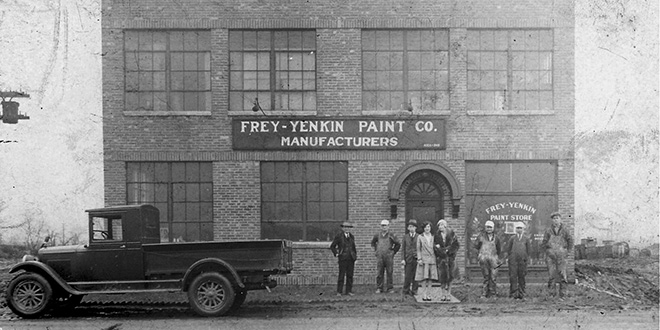
Jacob and Musa Yenkin booked passage on the SS Majestic of the White Star Line from Russia to the U.S. in 1906. They settled in Logan, Ohio, as fur and hide traders.
In 1920, the family moved to Columbus where they befriended Charles Frey who owned the paint-making shop next door. Eventually, Jacob, his three sons, Abe, Ben and Fred, and Frey created the Frey-Yenkin Paint Co.; Frey left the company in the hands of the Yenkins in 1934. In the early 1950s, they moved to a larger facility in Columbus and renamed the company Yenkin-Majestic, in homage to the life-changing journey almost a half century before. Now in its 100th year, Yenkin-Majestic is run by Fred Yenkin’s grandson-in-law, Andrew Smith. The company continues to manufacture and ship paint and paint resin from its Columbus headquarters to customers around the world.
A Century Later
Yenkin-Majestic has maintained its excellence by having reinvented itself a few times while always providing a high level of customer service.
“Yenkin-Majestic has always stayed ahead of the times to provide products that meet or exceed the newest rules, especially for oil-based paints, where we are a leader in resin and paint production,” says Noel Booker, president of the Coatings Division. “The constant has been our commitment to quality products, customer service, on-time deliveries and close to 100 percent fill rates.”
The company now has three divisions: Majic Paints, which makes primarily architectural specialty and consumer paints; YM Industrial, which sells customized OEM (original equipment manufacturer) coatings; and OPC Polymers, a maker of resins used throughout the paint industry.
“On the consumer side of our business, we are well recognized as the U.S. leader in farm and agricultural paints, particularly in aftermarket tractor and implement enamels and as a supplier of small-can specialty paints targeting the craft and DIY markets,” Booker says.
The third division isn’t as well known, but Booker says people often use the company’s OEM finishes every day without realizing it.
“Other than the product manufacturer, nobody really thinks about the brand of paint applied to an ironing board, golf balls or a shipping container,” he says. “However, they all get painted. One of our jobs at YM Industrial is to provide coatings that make products made by other companies look and perform great.”
Many customers purchase from more than a single division.
“Increasingly, we sell OEM products, such as metal primers, through dealer and industrial distributor channels,” says vice president of sales and marketing Kathy Streng. “Likewise, several of our architectural technologies, such as waterborne direct-to-metals, are finding applications in the OEM channel.”
Focus on Specialization
Yenkin-Majestic is one of the country’s largest family-owned paint manufacturers and distributors. The company has continued its growth with a focus on specialty paint products and customization.
“We make a complete line of paints, but where we really excel is in specialty products,” says Booker. “We may introduce new products or totally new formulations that perform better than old ones, but we are especially good at giving new life to tried-and-true formulations that face regulatory challenges, particularly among the myriad VOC air regulations across the U.S.”
Yenkin-Majestic keeps up with federal, state and local regulations so it can produce high-performing VOC-compliant paints nationwide, and help consumers, contractors and paint retailers access products. The newer formulas especially benefit high-demand products whose current ingredients are under regulatory pressure due to air quality issues. The company has invested significant time and resources into reformulating these products to ensure they are compliant in all or most markets.
Products With a Purpose
Another call for new products is to coat surfaces that were, up to now, resistant to being painted.
“People want to paint that thing that was never meant to be painted,” Booker says.
Yenkin-Majestic answers the call with a recently launched new product line called REPURPOSE, which required a major investment in its research and development facility. Booker is confident that the lab expansion will support Yenkin-Majestic’s growth goals.
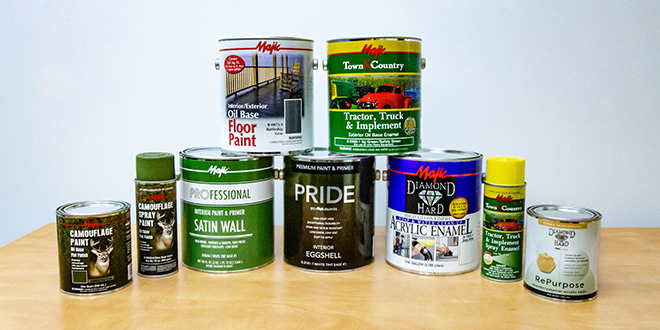
“We will continue to introduce new specialized products because they have targeted uses,” he says, adding that the segmenting of the lab expansion allows them to emphasize specialization. “Part of the lab does plant support, quality control and maintenance of our existing product formulas, while another section is dedicated to new technology and new products.”
Continuous improvement helps Yenkin-Majestic respond to customers’ needs and maintain a high level of service.
“We are ISO-9001 certified, so we are very system-oriented in terms of manufacturing processes,” he says. “We have a structured way of doing things including introducing a new product, label compliance and product compliance. If you stick to those established methods, it improves processes and makes you more efficient.”
While the development focus is on these new specialty products, there’s also a commitment to making Yenkin-Majestic a great place to work.
“We are increasing the size of our lab and adding more people for the development of specialty products,” Streng says. “While we grow, we work hard to maintain an atmosphere where people want to stay. There is a lot of longevity here, and we like that so many people have found their way at this company.”
Over the last century, Yenkin-Majestic has weathered the Great Depression, World War II, the 1970s oil embargo and the Great Recession. Now it’s doing its part to work through the COVID-19 pandemic. The company has as many employees as possible working from home, is staggering manufacturing and lab schedules to reduce the concentration of personnel and has redoubled housekeeping practices.
“Business threats come in many different forms,” Booker says, “But there’s stability in being part of a family-owned business. We have two generations active in the business. This pandemic is unique in its nature, but not the first crisis we have had to deal with. Our culture is one of continuity and perseverance.”
